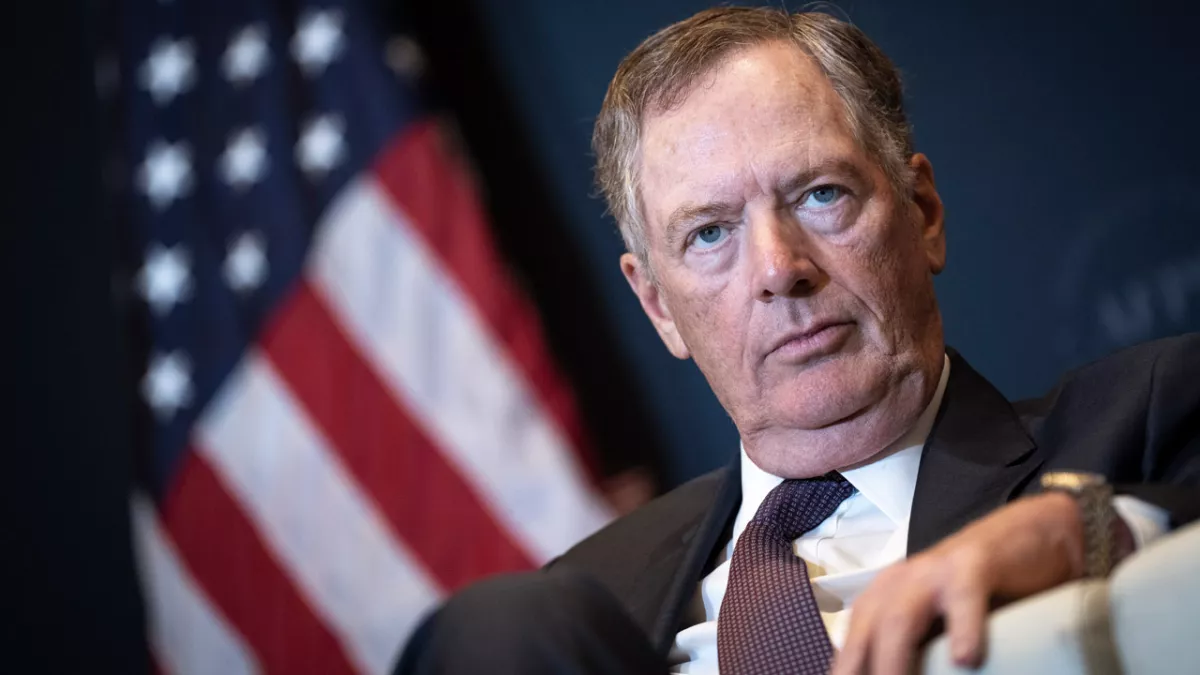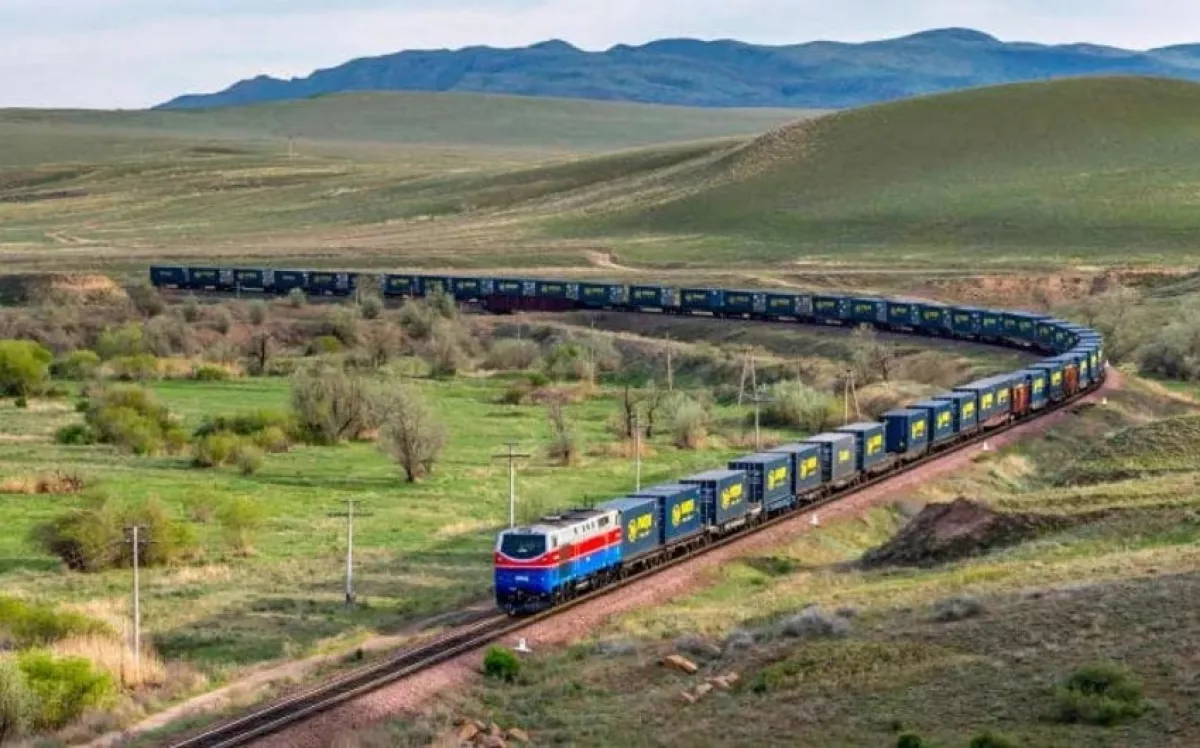Georgia’s role in the US-China tug-of-war Navigating new geopolitical landscape
On November 11, Georgian Prime Minister Irakli Kobakhidze, who was visiting Azerbaijan as part of the COP29 climate conference, expressed confidence in the imminent end of the war in Ukraine and the subsequent restoration of good relations between Tbilisi, the US, and the EU.
"We need a qualitative restructuring of relations with both the European Union and the United States. The war in Ukraine will end very soon, and all conditions will be created for the restoration of Georgia's relations with both the EU and the United States," said Irakli Kobakhidze. His remarks reflect the Georgian government's understanding of the latest global political trends, which provide new opportunities for the country.
Following Donald Trump's victory in the US elections, a new geopolitical landscape is taking shape—one that the countries of the South Caucasus will have to navigate. First and foremost, it has become clear that the Russia-Ukraine war has reached a deadlock. Some analysts believe this conflict marks the beginning of a potential Third World War. This raises an interesting opportunity to draw comparisons between the current war and previous global conflicts, particularly World War I, the 110th anniversary of whose outbreak was observed this year.
The First World War, which began in 1914, quickly reached a stalemate. The front lines "froze," and any territorial gains came at an unimaginable cost in casualties. The reason was simple: scientific and technological advancements had improved defensive structures, but the means for launching effective offensives—such as tanks and aircraft, which would later prove decisive in World War II—were still insufficient and technologically imperfect for breaking through entrenched defences. A similar situation is unfolding today in the Russia-Ukraine conflict. The widespread use of drones, which relentlessly target tanks and armoured vehicles once considered "breakthrough" units, has made large-scale, "classic" offensives, reminiscent of World War II, practically impossible. Even modest gains by assault infantry are paid for with tremendous losses.
It has become clear that continuing a war of attrition between both sides is simply unwise. It is no coincidence that, in the end, both the US elite and society favoured the Republicans, who, among other things, promised to make efforts to end the Russia-Ukraine war. On the other hand, the American Democrats, who advocated for endless, incremental aid to Ukraine—insufficient for a victory and only prolonging the deadlocked conflict—lost the public's trust.

As cynical as it may sound, the countries that benefit the most right now—just as during World War I—are those that are in no rush to join the conflict. The United States, for example, delayed its entry into World War I until 1917, and in the meantime, made vast profits by supplying the warring parties, ultimately becoming a superpower. A noteworthy example among smaller countries is Romania, which entered the war relatively late, in 1916, and was quickly defeated on the battlefield. However, since it ended up on the winning side, Romania managed to expand its territory by about three times. It suffered no significant losses and was able to take advantage of the situation, just like countries that maintained strict neutrality. Among them, Sweden is particularly illustrative. Before World War I, Sweden was one of the poorest countries in Europe, but by trading with the warring sides, it rapidly strengthened its economy. Sweden's current accession to NATO, however, marks a departure from the neutrality that ensured Stockholm's prosperity for decades.
In the current Russia-Ukraine war, Georgia's firm reluctance to become involved and open a "second front," as well as its decision not to impose harsh anti-Russian sanctions, has allowed the country to maintain one of the highest economic growth rates in the world. Potential shifts in the global geopolitical landscape following the US elections, if Georgia's leadership can navigate them wisely, could also offer the country new opportunities. The key is to remain committed to the strategy that has already proven effective and avoid rushing into global conflicts, ensuring that stronger geopolitical players do not use Georgia as "expendable material."
The first few days after Donald Trump's victory in the US elections suggest that the incoming administration will not only seek to "freeze" the Russia-Ukraine war but may also return to a policy of "containing China," positioning it as one of the primary global economic and geopolitical competitors to the US, just as Trump did during his first presidential term.

According to the Financial Times, Robert Lighthizer, who served as US Trade Representative when Donald Trump initiated the "trade war" with China, has been offered the position again in the new presidential administration. Lighthizer was highly respected by Trump and was one of the few senior officials who did not incur his anger during the first term, the Financial Times reports. Under his leadership, the US imposed high tariffs and duties on imports and declared a trade war on China. Additionally, Lighthizer clashed with the World Trade Organization (WTO), which oversees international trade disputes.
In his book "No Trade Is Free," published last year, Lighthizer continues to advocate for a "strategic decoupling" from China. He proposes replacing President Joe Biden’s policy of "de-risking" from Chinese dependency with a tougher stance aimed at reducing the trade deficit, including removing China's trade privileges with the US and imposing additional tariffs. His potential reappointment signals a return to tariff escalation and possibly a deeper economic rift between the US and China, which could significantly disrupt global supply chains.
Time will tell whether we are heading toward a large-scale "trade war" between the U.S. and China, let alone a conventional war (over Taiwan). However, the information coming out of Washington today should prompt Beijing to pay more attention to strengthening its ties with countries involved in the Belt and Road initiative. In this context, Georgia finds itself in a unique position. The country is of interest not only to the future administration of Donald Trump but also to the leadership of China.

China is carrying out large-scale infrastructure projects in Georgia, ranging from the reconstruction of the main highway connecting the east and west of the country to the construction of the deep-water Anaklia port.
In the summer of this year, during a working visit to China by Georgia's Minister of Economy and Sustainable Development, Levan Davitashvili, a "Memorandum of Understanding on the Development of Transport Corridors for the China-Europe Railway Express and the Trans-Caspian International Transport Route (Middle Corridor)" was signed. The memorandum outlines plans to deepen cooperation between Georgia and China to enhance the activation and efficient operation of the Middle Corridor. One of the key goals of the memorandum is to increase freight flows along the Middle Corridor from China to Europe and vice versa, as well as to strengthen trade and economic relations between the two countries. The memorandum states that both parties will work together to attract additional cargo to the Middle Corridor, including through route optimization, infrastructure development, and improvements to transport services, as well as enhancing cooperation in customs, transport, and security sectors.
The question arises: will the US oppose the Middle Corridor as part of a potential confrontation with China? An analysis of geopolitical trends suggests that this is unlikely. One of the reasons the US intends to "freeze" the Russia-Ukraine war is that it increasingly "binds" Russia to China. Therefore, US efforts will also focus on ensuring that, with the end of the war, the "Northern Corridor" for China's land transit to Europe does not become dominant. As a result, the development of the Middle Corridor, which runs from China through Central Asia, Azerbaijan, and Georgia, will likely remain a priority not only for Beijing but also for Washington. This holds true despite the ongoing tension in US-China relations. Naturally, the European Union will also have an interest in the Middle Corridor’s connections with China. In this context, both Azerbaijan and Georgia, even with the emergence of new lines of confrontation, will likely find opportunities to become indispensable partners for key geopolitical players.
Vladimir Tskhvediani, Georgia, for Caliber.Az








